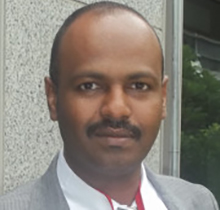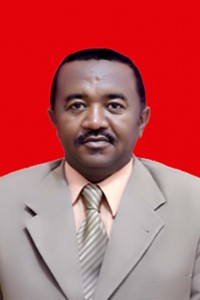In a nutshell
Many policy actions could protect households in Sudan from catastrophic ‘out-of-pocket’ healthcare expenditure.
Potential policy actions include lowering illness rates, reducing patients’ transport costs and expanding the availability of health insurance for poorer households.
Policy-makers in public health should initiate health awareness campaigns to promote people’s acceptance and use of preventive measures against illness, using public lectures, brochures and papers.
The absence of universal health insurance in Sudan means that ‘out-of-pocket’ (OOP) healthcare expenditure consumes a high portion of households’ incomes, forcing them to cut the share of their budgets allocated to education, food and other items. Cutting spending on such necessary items pushes huge numbers of households into extreme poverty with all its undesirable consequences.
Our research analyses data from Sudan’s National Baseline Household Survey to show what factors affect households’ OOP expenditure (Ebaidalla and Mustafa, 2017). We then propose a package of practical actions to protect households from becoming victims of OOP expenditure – and to reduce the impoverishment when such expenditure becomes catastrophic.
Lowering illness rates
Our evidence shows that higher illness rates are one of the causes of catastrophic OOP expenditure for Sudanese households. Illnesses can be reduced using precautionary strategies to stop episodes of chronic diseases (hypertension, diabetic, asthma, cardiac, cancer and psychiatric) and acute diseases (malaria, respiratory, diarrheal, minor injury and typhoid fever).
Malaria, for example, which constitutes 4.4% of total acute illness in the country can be easily prevented if stagnant waters and sewerage are managed in a way that breaks the progression of malaria-carrying parasites. Similarly, people can be educated about standard preventive measures, such as adopting healthy diets and taking exercise.
Policy-makers in public health should initiate health awareness campaigns to promote people’s acceptance and use of preventive measures. These campaigns must be delivered in languages that can be digested by the average citizen. In areas with particular cultural characteristics, campaign programmes should be conducted in local languages.
Reducing transport costs
Our evidence shows that greater distance between healthcare providers and households raises OOP expenditure. The problem is that Sudan’s low population density means that it is not technically or economically feasible to provide healthcare above primary levels in many places. The reality is that 70% of total healthcare cadres are concentrated in the capital city of Khartoum, serving only 20% of the country’s population.
Hence, a large portion of households are exposing to catastrophic OOP expenditure not simply because of direct payments on healthcare items, but also due to the costs associated with transport to places in which appropriate healthcare facilities are available. To reduce these negative effects, rural regions and remote areas should be equipped with modern networks of ambulance services as well as advanced health technologies and equipment. Adopting such measures would help to protect poor households from financial risk resulting from transport costs.
Expanding health insurance
According to the Public Health Institute, out of the informal poor population for which insurance is non-mandatory, only 35% are insured. To boost the use of healthcare facilities and, at the same time, to diminish households’ OOP expenditure, health insurance must be expanded to include the poorest groups in society, particularly those in rural areas and informal workers. This can be done via the following channels.
Employing banks’ facilities to pay health insurance subscription fees
Financing health insurance subscription can be facilitated by drawing funds from banks. The specialised banks (the Farmers’ Commercial Bank, the Sudanese Agricultural Bank, the Animal Resources Bank and the Workers’ National Bank), which are mostly run by the government, can become involved in protecting farmers and workers from financial risks arising from OOP expenditure.
These banks are designed to serve farmers and informal workers, either by giving them loans and technical guidance to conduct income-generating activities or by intervening in agricultural product markets as buyers to protect them from declining prices. Since these banks aim to protect part of the population from market fluctuations and harmful work conditions, their mission can be extended to offer funds for farmers and workers to cover flat rate insurance payments.
Encouraging NGOs to pay health insurance subscription for disadvantaged groups
A number of voluntary and charitable NGOs work to alleviate poverty by providing in-kind and cash assistance to disadvantaged communities, particularly in areas of conflict. These organisations’ missions in combating poverty can be reinforced by encouraging them to provide direct and indirect healthcare to these communities. Directly, these charitable bodies can implement healthcare programmes that include diagnosis, advice and early medical intervention for those who in need.
NGOs and charities might also be involved in spreading understanding of the importance of preventive measures against illness, using public lectures, brochures and papers. This would contribute significantly to improve health by preventing diseases that result from unhealthy practices (such as early marriage and Pharaonic circumcision, an unhygienic environment and reliance on traditional healers).
Indirectly, charitable NGOs can help to reduce poverty by paying fees for health insurance subscriptions for poorer individuals. Taking such steps would be much better than provision of in-kind and cash assistance. This is because health insurance would prevent households from cutting expenditure on other items such as food and education, protect them from poverty and thereby keep them in better health.
Directing health insurance to cover catastrophic medical expenses
Healthcare policy-makers should list illnesses that push households to undertake catastrophic OOP expenditure among the items covered by health insurance coverage.
Further reading
Ebaidalla, Ebaidalla Mahjoub, and Mohammed Elhaj Mustafa Ali (2017) ‘Determinants and Impact of Household’s Out-of-Pocket Healthcare Expenditure in Sudan: Evidence from Urban and Rural Population’, ERF Working Paper No. 1170.
This article is based on ERF Policy Brief – Measures to Protect Poor Sudanese Households from the Risks of Catastrophic Health Expenditures.



